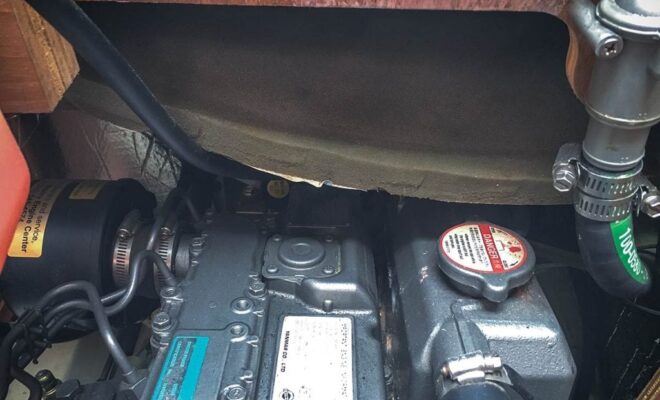7 Practical Tips When Soundproofing Your Boat’s Engine Bay

Article
The engine room is one of the most significant sources of noise and vibration in a watercraft. Once your boat is operated, various mechanical parts move and give off sounds that can bring forth short- and long-term consequences. Without proper marine sound proofing, engine noise can affect your crew’s productivity and sense of hearing. It can also reduce interior comfort for them and your passengers.
From using the right sound proofing material to covering all gaps and cracks, here are seven tips to follow when you’re quieting your boat’s engine bay.
Tighten any loose parts in your engine
First off, you must inspect your engine and see if it has any loose parts. Having loose parts can amplify the noise and vibration that your engine is producing, so tightening them is one simple way of reducing those sounds. If a component is severely loose, cracked, or damaged, consider having it replaced.
Invest in quality marine sound proofing material
Superior performance and durability are two things you should always consider when choosing a soundproofing material for your engine bay. Today, you have several options, but one of the most recommended is the insulation coating. They effectively reduce noise and vibration — plus, they’re versatile and easy to apply. With their spray-on application, you can efficiently provide acoustic insulation even to the oddly shaped and hard-to-access parts of your engine room. This kind of soundproofing alternative is also easier to maintain, helping you save money in the long run.
Make sure that the material is waterproof
Corrosion is an issue among conventional insulating materials. If you don’t want to deal with the costly and stress-inducing corrosion under insulation, opt for a material that won’t allow water and moisture to come into contact with the substrates in your engine bay.
Go for something eco-friendly
Boat owners and builders invest a lot when it comes to soundproofing their engine bay. While at it, you may want to choose a sound proofing material that will be friendlier to the environment. Thankfully, there are sound proofing solutions especially built for water vessels with low volatile organic compounds and no toxic ingredients.
Always follow the instructions from the manufacturer
While it’s advisable to opt for a material that’s economical to apply, you shouldn’t skip reading instructions and recommendations from the manufacturer. This way, you’ll know important details like the range of application thickness, the types of surfaces where they can be applied, and if a primer is needed or not. Choose a reputable supplier so they can guide you and attend to any of your queries or further clarifications.
Seal all gaps and cracks
When soundproofing your engine bay, or any other surface in your boat for that matter, you must be thorough in your application. Don’t leave any gaps or cracks because they will provide a path for sound to escape if they remain unsealed.
Consider adding some thickness to the floor
Depending on the design of your boat, you can also rely on specially made mats — apart from marine sound proofing coatings — to dampen the noise coming from your engine bay.

